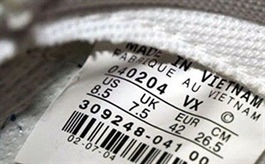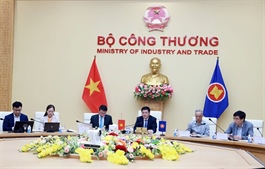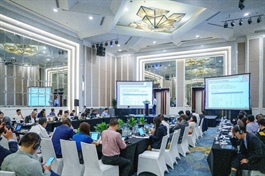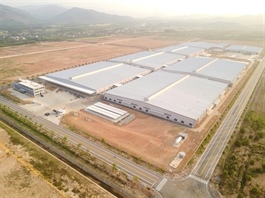Investors highlight bankruptcy risk with FiT rules
Investors highlight bankruptcy risk with FiT rules
The Thai investors of over a dozen renewable energy ventures with a total scale of more than 1,400 MW are expected to meet with the Ministry of Industry and Trade to hash out the issue of retroactive changes to subsidised pricing for solar power projects.
The meeting, scheduled to be held on April 10, comes after the investors submitted a petition to the relevant Thai and Vietnamese authorities, according to a VIR source. The ministry also established a working group to discuss and work with them last week.
The Thai investors are just some of a group overseeing more than 170 wind and solar power projects that face the risk of retroactive feed-in tariff (FiT) electricity prices. As per the regulations, they require a completion acceptance (CA) certificate instead of a previous commercial operation date (COD), affecting investment of more than $13 billion.
Among those affected include two B.Grimm Renewable Group initiatives, two from Gulf Energy Development, four from Gunkul Engineering, and eight fronted by Super Energy Corporation.
Last month, Vietnam Electricity (EVN) and Electricity Trading Company made a temporary proposal, according to which projects that apply the FiT1 price of 9.35 US cents/kWh but with a CA certificate dated after the expiration date of FiT1, but still within the term of the FiT2 rate of 7.09 US cents/kWh, will be temporarily calculated according to FiT2.
If projects apply FiT1 or FiT2 but have a CA date after the expiration date of FIT2, the price of transitional ventures at 4.6 US cents per kWh will be applied.
However, the Thai companies noted that the CA certificate process is not due to any fault of the enterprises. Therefore, investors suggested that if EVN applies the provisional price, it will cause losses. If there were any subsequent adjustments from the state management agency, EVN must be responsible for compensating for the damage.
Tran Minh Tien, representative of Bangkok Glass Energy, said that the company has invested in four solar power plants in the central provinces of Phu Yen and Binh Thuan based on the FiT1 electricity price for the projects. If the electricity purchase price is changed, the projects involved will have no choice but to go bankrupt.
“If the electricity price is retroactively adjusted and we no longer enjoy incentives, we will have to offset previous revenue. This will lead to projects falling into bad debt due to insufficient cash flow to pay off debts, affecting not only businesses but also directly affecting the bad debt picture and cash flow of banks.” said Tien.
Bui Van Thinh, chairman of the Binh Thuan Wind and Solar Power Association, said the issue of retroactive FiT prices has raised many concerns and insecurities in the business community, especially new groups that have been planning to invest in the renewables market.
“It is necessary to state that at the time of COD of wind and solar power schemes before the deadline of the FiT mechanism, there is no regulation requiring ‘acceptance of results by competent authorities’ as a condition for EVN to recognise COD, as well as a condition to enjoy a preferential price mechanism,” Thinh said.
“Vast amounts have been invested in this sector. We had expected to connect to the grid and reach COD in time to qualify for the preferential tariffs. However, now it is estimated that around 15,000MW of wind and solar power could be affected if a review is conducted. Meanwhile, most of these projects have only managed to repay about 30-40 per cent of their total loan value,” said Thinh.
|
According to Conclusion No.1027/KL-TTCP issued by the Government Inspectorate, several renewable energy projects that had been recognised as having reached commercial operation date (COD) and were receiving FiT1 and FiT2 rates did not have official acceptance documents at the time of COD. This has caused financial losses to Vietnam Electricity. To address the issue, the Ministry of Industry and Trade has proposed that projects currently benefiting from FiT rates but found in violation, as stated in the inspection conclusion, due to not fully meeting the eligibility criteria, should no longer be entitled to the preferential FiT. Instead, the electricity purchase price must be re-determined in accordance with regulations. In addition, any inappropriately received FiT amounts will be recovered through offsets in electricity payments. |
- 11:07 11/04/2025


























